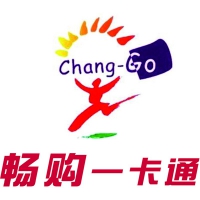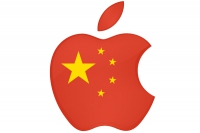China Payments Research
Why we believe Apple Pay can't beat Alipay in China
When talking about O2O (Online to Offline), we should keep in mind that the key to the O2O business success lays in the hardware and acceptance support from offline merchants. Eventually, it’s up to merchant’s willingness to accept a new digital payment method or not. Beyond the merchant fee and technology required, the key criteria for a merchant to decide is the user base of a particular payment method.
Digital Payments and Tourism: Lakala bought out by Tibet Tourism
A tightening regulatory policy towards third party payment has driven China's payment industry into a period of consolidation and M&A. For some, this has been a great opportunity to get into other segments of the market like O2O (online to offline). We saw this in 2015 when Wanda bought 99bill. This time it's Lakala with a help of with a company called ‘Tibet Tourism.’
UnionPay's data arm collaborates with a global advertising network to combine card transaction and consumer behavior data
In January 2015, UnionPay Smart, a China UnionPay company specialized in business intelligence, customer profiling and online marketing, announced an agreement with Isobar China, a part of global Top-5 advertising conglomerate Dentsu Aegis. Together with Isobar China, UnionPay Smart will build a data management platform (DMP) targeting online advertising.
China's PBOC revokes yet another prepaid card company license
In January 2015, Chang-Go, one of the more successful prepaid card companies operating in China, was ordered by China's Central Bank to stop operations. According to the bank, the company was not giving customers refunds in a full manner, misappropriated reserve deposits and even forged financial documents.
2016 should be the year when finally Apple Pay manages to launch in China, as announced by the Cupertino-based company on its own website and as was already reported by the Wall Street Journal earlier this past autumn. This wasn't really a surprise as Apple had long talked about its China plans for Apple Pay. Less expected, Samsung Pay is also going through the same process and should also launch in 2016.
How China's mobile payment regulations fit into the broader strategy for the financial industry
On the 28th of December, China promulgated the next set of mobile payment regulations. Although some of the regulation was expected, how will the rest impact the mobile payment industry development in 2016?
Could China’s Yelp, Dianping be the international opportunity for China’s O2O business?
China’s digital travel landscape is a world in its own. Increasingly, globe-trotting Chinese are turning away from prepaid package tours and becoming more mobile savvy in applications from hotel booking to local entertainment. It is estimated recently by Dianping, a restaurant review and coupon website that Chinese outbound tourists are forecast to spend 250 billion yuan (US$39 billion) on food in 2015, 25% more than in 2014.
Alipay has made it to Macau. Hello gaming industry!
Early last month, in a statement released from the Monetary Authority of Macau, Alipay was approved for use in Macau's gaming market a fact confirmed by the industry that now macau residents and/or institutions can have an Alipay account and use it for payments.
Apple. Pay. Finally. Makes. It. To. China....well maybe...
After nearly a year and a half from its US release date and after long preparations and cancelled announcements it finally looks like Apple will be releasing its mobile payment system, Apple Pay, in China somewhere in Q1 of 2016, possibly before Chinese New Year rolls around.
Will China's crackdown on illegal offshore money transfer matter?
As China's economy slows and people push to move their money abroad for better returns, the government is now trying its best to keep money at home. The PBOC has estimated that outflows of the China’s foreign reserve attributed to illegal underground banks amounted to about 800 billion yuan ($125 billion) from April to October this year. Chinese police launched a series of crackdown on underground banking and illegal foreign-exchange network to continue the anti-corruption campaign. But will it matter? Can they actually stem the flow of money out?
More...
Swatch moves into payment-enabled smartwatches with a NFC watch
Earlier this week at The Swatch Art Peace Hotel on the Shanghai Bund, Swatch launched a new smartwatch called the Swatch Bellamy. The Swiss based company announced that it is teaming up with China UnionPay and the Bank of Communications to allow the device to be used for mobile payments at any UnionPay POS as it seems like the Bellamy is NFC-enabled.
Tencent expands WeChat payment services overseas to capitalise on the growing mobile payments industry
As mobile payments become increasingly abundant among global transactions and an increasing preference for mobile payments amongst Chinese consumers continues to develop both in China and overseas, it was only a matter of time for which mobile payment platform providers would see the opportunity to capitalize on the growing overseas demand for mobile payments.
Alibaba’s Strategic Investments into Beidou Satellite Navigation System - China’s Domestic Answer to GPS
Finance, cinema, bricks-and-mortar and soccer - what could be next for Alibaba? The e-commerce giant has been poised to undertake a new venture with the Chinese state owned arms, vehicle and machinery producer China North Industries Group Corp, or Norinco.
Alibaba’s strategy to integrate brick-and-mortar stores into its business model has become more prominent over the coming weeks when it was announced on 10th August that it would be investing $4.6bn (19.99% stake) in the Chinese electronics retailer - Suning Commerce Group Co Ltd.






